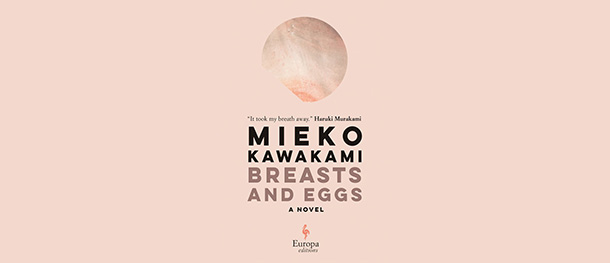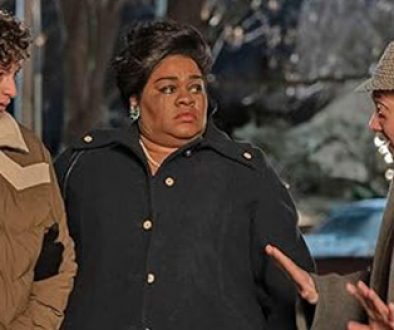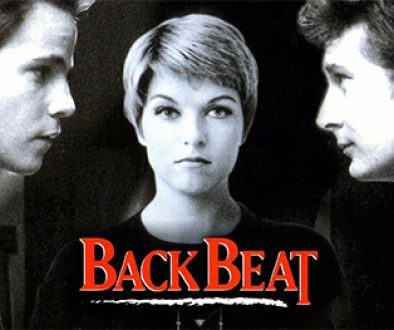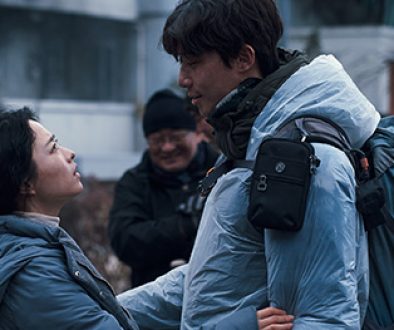Review: Breasts and Eggs
‘Breasts and Eggs’ is Mieko Kawakami’s first full-length novel translated into English. The book is split into two parts. In part one we follow thirty-year-old Natsuko, her older sister Makiko, and Makiko’s twelve-year-old daughter, Midoriko. Natsu is a failing writer, Makiko is in search of breast enhancement surgery, and Midoriko has fallen into communicating only in writing. Part two takes place ten years later, Natsu (now in her near forties) is a successful writer, but she still feels something is missing from her life; a child.
‘Breasts and Eggs’ is an amazing piece of literature that explores women’s lives at different stages and Japanese society’s views on artificial insemination. I would begin to argue that it is an amazing piece of feminist literature.
Part one of this novel is my favourite part. It only takes up a quarter of the entire book, but I like that it focused on three women all of whom are at different stages of their lives. Midoriko is a twelve-year-old girl on the cusp of puberty who is terrified of getting her period and becoming a woman. Natsu is nearly thirty and although she moved to Tokyo to become a writer, she is working a dead-end minimum wage job and can’t seem to push through to finish her novel. Lastly, Makiko is approaching her forties and still working as a hostess and is wanting to feel/appear young and attractive (via breast enhancement surgery and bleaching her areolas to make them appear lighter (something I didn’t know was a thing.)) Part one takes course over three days, and in those short three days, Kawakami does an excellent job of revealing not only the dynamic between these three women, but also how very different each stage of their lives is. Arguably, my favourite bits in part one are Midoriko’s diary entries scattered throughout. In part one Midoriko has resorted to communicating via writing only, so these diary entries give us a better insight into what she is thinking/feeling and why she is no longer talking to her family. Reading about how she is afraid of getting her period, becoming a woman and one day eventually having babies was all too relatable to me. Kawakami does an excellent job of describing these pre-teen fears and will take you back to being a pre-teen anticipating your period.
Part two focuses on Natsu ten years later. Still living in Tokyo, but she now lives her life as a writer. She has a book published and writes articles for multiple websites, however, she is struggling to write her next book and fears she will soon become irrelevant in the literary world. Something I did miss in part two was the focus on these three women. Although Makiko and Midoriko are mentioned, there isn’t much focus on them anymore and I think it would’ve been so interesting to hear more about where they are in their lives ten years later. Makiko is still a hostess at nearly fifty but seems content now with ageing. It is Midoriko I would’ve loved to have a bit more focus on; at 22 she is now a young adult, at university and in a long term relationship with the ‘perfect boyfriend’ as Natsu says. It would’ve been interesting to see if she still, as a young adult, had these fears of fulfilling the ‘duties’ as a woman, such as childbirth, and if not when exactly did these fears disappear.
The biggest focus in part two is that Natsu wants a child, but this desire in itself brings about complications that were very interesting to read about. Firstly, Natsu’s asexuality. Although Kawakami never specifically states/uses the word ‘asexual,’ it is highly implied that Natsu is as she physically and emotionally cannot have sex, which is was ultimately led to her and her first love breaking up. Natsu talks about how she feels romantic desires, such as holding hands, cuddling, talking all night but when it comes to sex she can’t do it. It is implied that after the end of this relationship in her early twenties that she never gets into another one. So, in her late thirties she is single and wanting a child, how is she meant to go about this?
This brings us to the second complication for Natsu and the central talking point in part two. Artificial insemination. I had never thought or considered Japanese society’s views around artificial insemination before, so it was interesting to read that overall it is frowned upon. Kawakami tells us that artificial insemination is accepted in very specific cases, such as a husband and wife going through IVF. However same-sex couples and single woman have to either use foreign clinics or find a man who is okay with providing them with a semen sample. It was also interesting to read the different character’s views on this particular topic. Natsu herself is conflicted, her writer friend Rika (who is a single mother) fully supports the idea, and her sister Makiko (also a single mother) is against the idea. We are also introduced to Aizawa and Yuriko who are children of donors and we get to hear their views on this topic. I would highly recommend reading this novel if you are interested in reading about Japanese society’s views on artificial insemination.
The last thing I want to talk about in ‘Breasts and Eggs’ is the men. If you talk to the woman in your life, I can guarantee that most if not all of them will tell you that a man has negatively impacted their life in some way. In ‘Breasts and Eggs’ all of the women have had to deal with shitty men. Natsu and Makiko’s father was an alcoholic who abandoned them. Makiko’s husband leaves her whilst she’s pregnant with Midoriko. Natsu’s boyfriend cheats on her and years later leaves her an emotionally abusive phone call. Although Rika had her husband divorce on mutual terms, he takes no responsibility in his child’s life. The potential donor ends up being a total creep. But the worst man in this entire book is Yuriko’s ‘father’ who sexually abuses her as a child, both at home and in public and lets his friends abuse her too. Some may argue that it’s not fair that Aizawa is arguably the only ‘nice guy’ in the entire novel as it’s not equal to real life. However, I argue the opposite. This is a novel that focuses on women, their thoughts, wants and desires and if Kawakami wants to talk about how men can negatively impact woman’s lives, this book was perfect for doing that.
Overall, ‘Breasts and Eggs’ is an amazing piece of feminist literature. Although I prefer part one, I highly recommend you read this book if you are interested in artificial insemination in Japan and if you want to read a novel about a woman figuring out what she wants in life. I will definitely be reading her acclaimed novel ‘Heaven’ when the English translation gets released in June this year.
4/5 stars.
Review by Megan.







